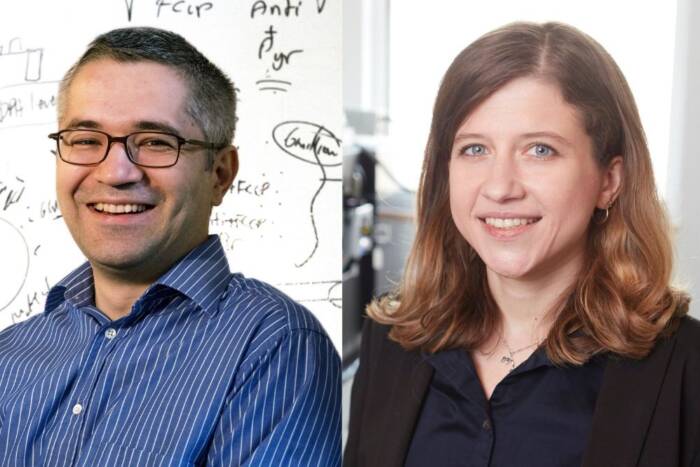Martin Rees is 2009 Lewis Thomas Prize winner
by JOSEPH BONNER
For as long as humans have gazed at the night sky, we have questioned our place in the universe and how and where it all began. Martin Rees, the celebrated British cosmologist and astrophysicist, has chronicled scientists’ speculations about the cosmos through seven volumes of popular science. On April 26, President Paul Nurse presented Dr. Rees with the 2009 Lewis Thomas Prize for Writing about Science. The prize recognizes Dr. Rees’s 2000 publication Just Six Numbers: The Deep Forces that Shape the Universe.
“In his book Just Six Numbers, Martin takes us on a journey through the cosmos, and introduces us to six exquisitely tuned numbers that enable the universe — and life as we know it — to exist,” says Dr. Nurse. “Martin provides his readers with lucid and compelling descriptions of the origins and meanings of nature’s fundamental constants. It is a great pleasure to recognize him with the Lewis Thomas Prize.”
Dr. Rees, who is currently president of The Royal Society, studied at the University of Cambridge. In 1973, he became a fellow of King’s College and Plumian Professor of Astronomy and Experimental Philosophy at Cambridge, a post he held for 18 years before becoming a research professor. In addition to his role as head of The Royal Society, he is also professor of cosmology and astrophysics and master of Trinity College at Cambridge and a member of the United Kingdom’s House of Lords.
Dr. Rees has made seminal contributions to our understanding of how the universe operates, including the origin of cosmic microwave background radiation and the distribution of quasars, work that challenged the Steady State theory of the origin of the universe in favor of the Big Bang. He was also among the first to suggest that quasars are powered by black holes. He is the author of more than 500 research papers.
A trustee of the Institute for Advanced Study in Princeton, New Jersey, Dr. Rees is the recipient of numerous awards, including the Royal Swedish Academy’s Crafoord Prize, the Balzan Prize, the Bower Award and Prize for Achievement in Science from The Franklin Institute, the Gruber Cosmology Prize and the UNESCO Niels Bohr Medal. He is a foreign associate of the National Academy of Sciences and the American Academy of Arts and Sciences.
Established in 1993 by The Rockefeller University Board of Trustees, the Lewis Thomas Prize is named after its first recipient — writer, educator and physician-scientist Lewis Thomas. The award honors “the rare individual who bridges the worlds of science and the humanities — whose voice and vision can tell us about science’s aesthetic and philosophical dimensions.” Past recipients include Freeman Dyson, Jared Diamond, Oliver Sacks, Edward O. Wilson and Richard Dawkins.
Dr. Rees’s prize lecture, titled “From Big Bang to Biosphere” and delivered in Caspary Auditorium preceding the presentation of his award, took audience members through a colorful tour of the history of the universe. The lecture can be heard at rockefeller.edu/lewisthomasprize.



